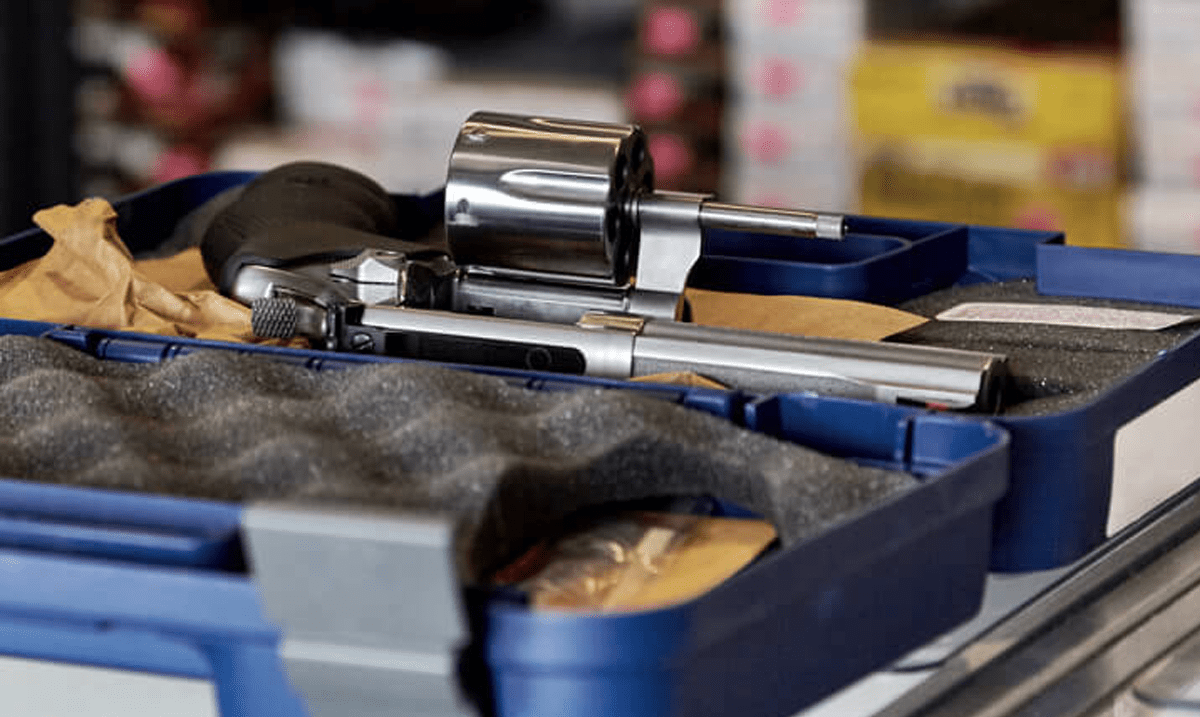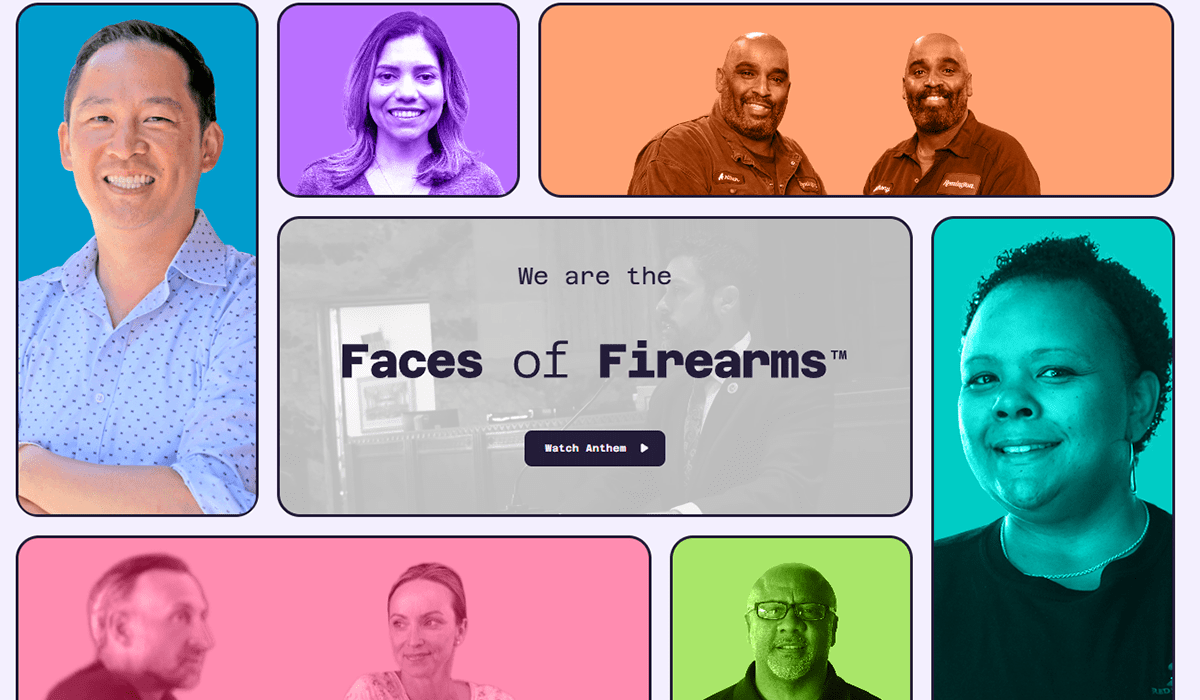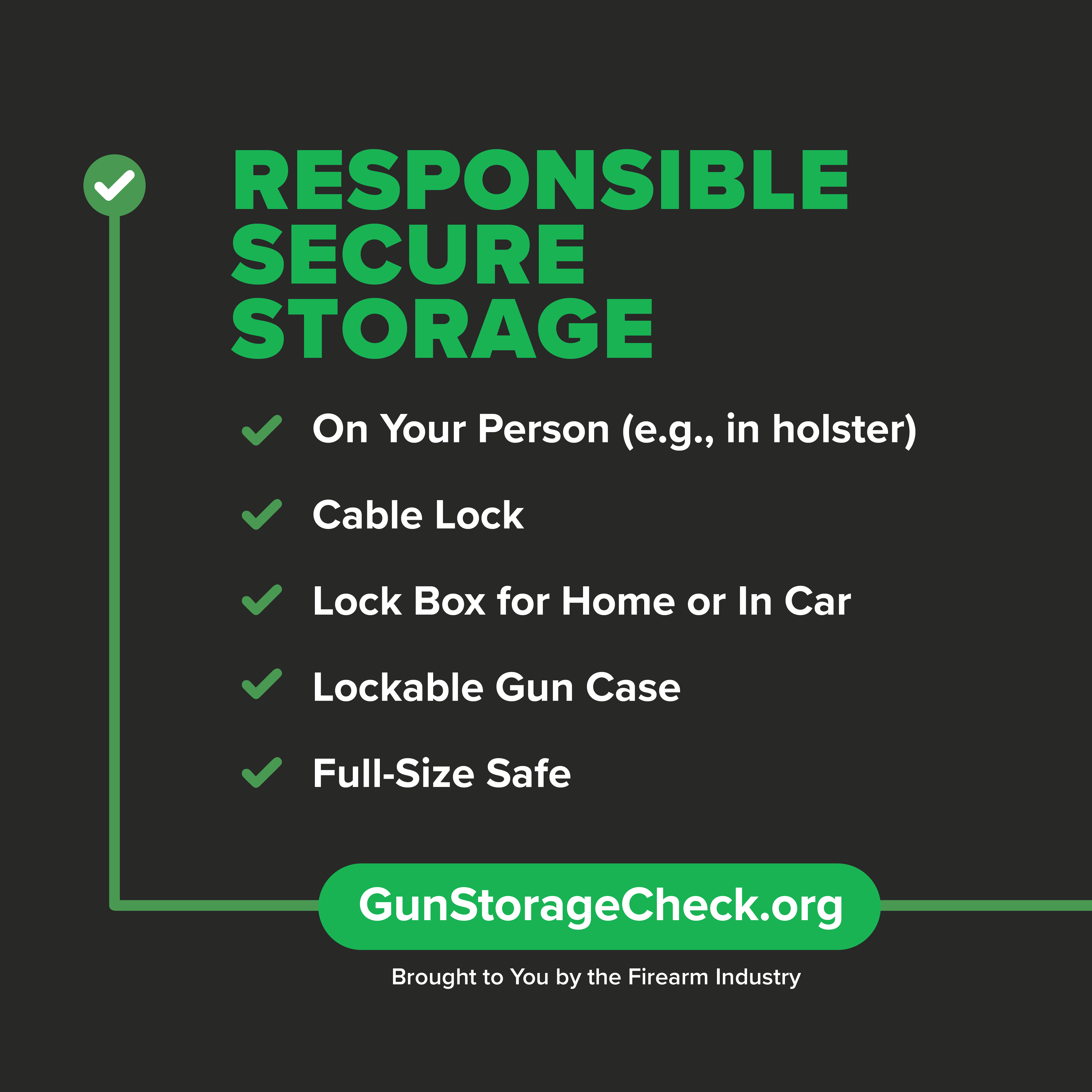 Back to News
Back to News
December 14, 2017
From the Counter: Sidney’s Department Store and Uniforms
“From the Counter” is the NSSF timely industry perspectives from firearm retailers across the country. Our goal is to identify and highlight innovative market strategies to help retailers compete more successfully. Lessons learned will be drawn from an array of regions with diverse market economies in an era of political change. While this column has focused on larger retailers in the past, this month we visit an independent retailer in the Deep South.
Sidney’s Department Store and Uniforms — Augusta, Georgia
The firearms side of this business keeps more than 1,000 guns in stock, with 300 handguns and a large number of custom and mid- to high-grade sporting shotguns and rifles. Combined with its clothing business, there are more than 10 million SKUs throughout this store.
Sidney’s has three full-time employees with two to three part-timers on the firearms side. The store is open six days a week from 10:00 a.m. to 6:00 p.m. weekdays and 10:00 a.m. to 5:00 p.m. Saturdays.
Adopting a “Can Do” Customer Service Culture
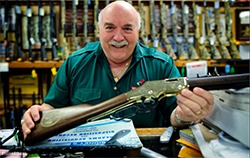 Sidney’s was founded as a haberdashery in the late 1800s. During the 1960s, this uniform and soft goods company began to handle firearms to fill duty belt orders from the local police department.
Sidney’s was founded as a haberdashery in the late 1800s. During the 1960s, this uniform and soft goods company began to handle firearms to fill duty belt orders from the local police department.
These solid relationships built from the uniform supply business migrated into and eventually expanded to firearm sales. By the 1980s, the store was an active firearms supplier.
After returning from Vietnam and then time in law school in the early ’80s, young Steven Fisher began taking over the reins of the family business. It wasn’t long before he found that he had a knack for dealing with government culture.
Back in 1983, a friend at a local military installation mentioned in an off-hand comment that they needed 88,000 rounds of .38 Special. Dupont, the government distributor at the time, told the customer the order would take six months to fill. Upon hearing this, Fisher figured he could get most of the order into his station wagon and deliver it to the military later that afternoon.
“I went to Ellett Brothers and filled my station wagon with what wound up being 66,000 rounds. It just wouldn’t hold anymore. We met on a gravel road, transferred the shipment and I delivered the rest of the order in a few days,” said Steven Fisher, Sidney’s owner.
That was just the beginning of this retailer finding a niche in delivering sales to law enforcement and local military customers. Today, that “can do” culture translates into every transaction in the store.
“It comes down to sincerity and showing that you care about the sale and the customer’s satisfaction. You have to look them in the eye, share their passion and always be fair. All of my employees do it, and they believe it,” said Fisher.
Exclusive After-Hours Client Events
While honest service is king, Fisher also noted the importance of exclusive client interactions.
One of Sidney’s holiday traditions started with a construction company that regularly purchased work clothing. That company always gave out bonuses at its annual Christmas celebration and thought that many of its employees would enjoy getting to spend time at the store after the party.
“We stay open on these [Christmas party] evenings with specials tied to those specific customers. With great frequency, the workers, with bonuses in hand, arrive at our store for a slice of pizza and some ice cream after the party. Traditionally, they purchase a notable Christmas gift,” said Fisher.
Snagging and Converting Transfers to Store Sales
Capturing store traffic for an accessory after a transfer is a reasonable goal for most retailers. However, this store makes every effort to seize the entire sale.
“When someone calls and wants to do a transfer, of course we offer to take care of their needs. However, we are quick to inquire about what the exact firearm is and the total purchase cost. Nine times out 10, by the time we break down the cost of shipping, the service fee often charged by the web vendor and our transfer fee, our store can easily beat the total cost of the item by at least $75,” said Fisher. “In most cases, we have the gun in stock. And if we don’t, we can have it delivered—often by the next day. It’s pretty hard for a customer to say no when he can have the gun in hand at least one or two days sooner with around $100 savings,” he said.
Fisher added that after they get the transfer customer in the store, they send them home with a vast assortment of accessories. It has become one of the most effective strategies for gaining new clients or regaining a former client the store may not have seen in a long time.
Capitalizing On the Used-Gun Counter
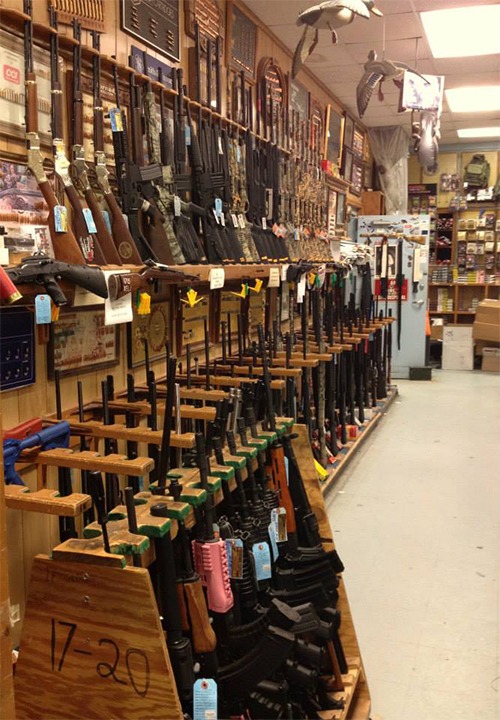 One of the strongest profit centers in the store is the used-gun counter. While there are no real trade secrets, Fisher just doesn’t understand why more stores don’t get involved in selling and trading used guns.
One of the strongest profit centers in the store is the used-gun counter. While there are no real trade secrets, Fisher just doesn’t understand why more stores don’t get involved in selling and trading used guns.
“Yes it’s a skill, but no, it’s not rocket science,” he says.
Although price and technical knowledge are paramount, the numbers and information have never been easier to access.
“It’s just so easy to research pricing and resolve technical questions. However, you still need to be able to read people. You need to have a feel for what will make them happy and what feels fair,” said Fisher.
Another critical component of this store’s commitment to used-gun sales its customers can trust is to offer a “No Questions Guarantee” for the gun’s performance. Doing this requires a gunsmith. This store has two on retainer.
“Every single gun is checked out. When a customer buys it, he knows if the firing pin breaks we will take care of it, even a few years later,” said Fisher.
Trading is an art, and this retailer believes it’s a disappearing skill. It goes beyond the ability to read a customer. It requires listening that permits a thorough understanding of what that customer’s wants are so that the store can meet their needs.
Lesson Learned
Lessons learned from this retailer center on building relationships that drive a customer-service culture.
- Offer an Exclusive Event — Create an environment in which customers feel they’re being treated to something exclusive and special, and then add a dash of fun. Holidays are supposed to be joyful. For that matter, so should the retail experience — every day.
- Identify Unique Sales Opportunities — While product diversity can always strengthen a retailer, finding products not sold or serviced by larger competitive retailers can increase traffic and sales. For this retailer, the used-gun counter is central to this strategy.
- Learn the Art and Science of the Sale — Treat your customers like family and let them know you truly care. Listen to their wants and needs. They almost always tell you exactly what they want.
You may also be interested in: From the Counter: Kirkwood Outfitters
Categories: Bullet Points, Featured, Retailers, Top Stories






